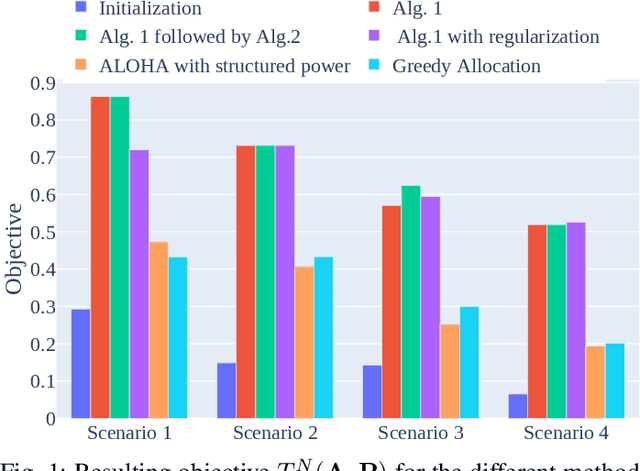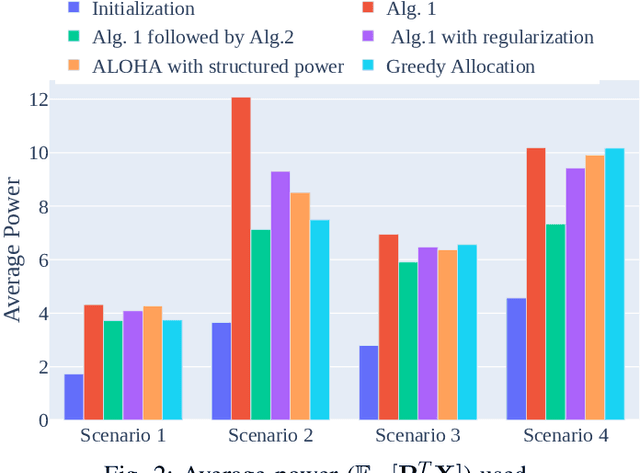Joint Slot and Power Optimization for Grant Free Random Access with Unknown and Heterogeneous Device Activity
Paper and Code
Jul 26, 2024

Grant Free Random Access (GFRA) is a popular protocol in the Internet of Things (IoT) to reduce the control signaling. GFRA is a framed protocol where each frame is split into two parts: device identification; and data transmission part which can be viewed as a form of Frame Slotted ALOHA (FSA). A common assumption in FSA is device homogeneity; that is the probability that a device seeks to transmit data in a particular frame is common for all devices and independent of the other devices. Recent work has investigated the possibility of tuning the FSA protocol to the statistics of the network by changing the probability for a particular device to access a particular slot. However, power control with a successive interference cancellation (SIC) receiver has not yet been considered to further increase the performance of the tuned FSA protocols. In this paper, we propose algorithms to jointly optimize both the slot selection and the transmit power of the devices to minimize the outage of the devices in the network. We show via a simulation study that our algorithms can outperform baselines (including slotted ALOHA) in terms of expected number of devices transmitting without outage and in term of transmit power.
 Add to Chrome
Add to Chrome Add to Firefox
Add to Firefox Add to Edge
Add to Edge